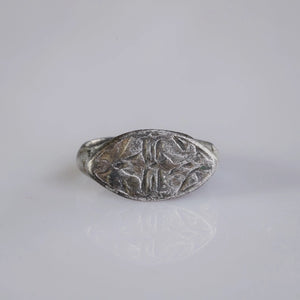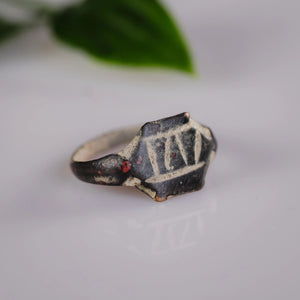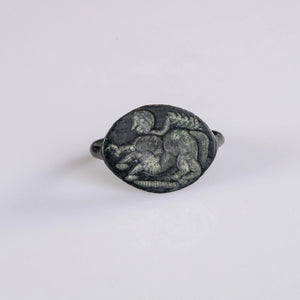Interesting facts
The Genesis of an Empire: Augustus's Ascendancy
The question of who founded the Roman Empire takes us back over two millennia to a critical transformation in Roman history. It’s a story steeped in turmoil, ambition, and unprecedented political change. While Rome’s legacy began as a city-state and republic, the empire as we recognize it today was forged by a singular figure whose reign marked a profound turning point: Gaius Julius Caesar Augustus, better known as Octavian. But how did this come to be? And why does Augustus deserve the title of the first Roman emperor and the founder of the Roman Empire?
The Decline of the Roman Republic
To understand Augustus’s role, we must first look at the context that preceded the empire. For centuries, Rome was governed as a republic, a complex system of elected officials and senatorial rule that represented the collective will of its patrician class. Yet the Republic was never free from internal conflicts, social unrest, and power struggles. By the 1st century BC, the Roman Republic had begun to fracture under the stresses of rapid expansion, increasing wealth disparities, and the ambitions of powerful individuals.
One of those figures was Julius Caesar, whose military conquests and political maneuvering set the stage for the emergence of a new political order. Caesar’s crossing of the Rubicon in 49 BC was a pivotal moment—a bold declaration that ignited civil war. The phrase “crossing the Rubicon” has since become synonymous with taking an irreversible step. After his victory, Caesar was appointed dictator for life, but his assassination in 44 BC plunged Rome back into chaos, igniting a brutal power struggle with no clear heir. For enthusiasts of history, and particularly for those fascinated by the stories of ancient Rome, wearing a piece of that history might just bring it closer. Consider the 'Auriga' - Roman Silver Ring (1st–3rd CE), offered by Aurora Antiqua. It's more than just a ring; it's a tangible connection to a world forged by the likes of Augustus Caesar himself. Explore this unique piece at your convenience and let the art of the past inspire your present. Visit here to see it for yourself.

Octavian and the Rise of Augustus
Enter Octavian, Julius Caesar’s adopted son and heir. Though young and initially underestimated, Octavian skillfully navigated the treacherous political waters following Caesar’s death. His alliances, notably the Second Triumvirate with Mark Antony and Marcus Lepidus, allowed him to consolidate power and eliminate rivals. The decisive moment came in 31 BC at the Battle of Actium, where Octavian’s forces triumphed over Antony and Cleopatra, ending the last resistance to his dominance.
In 27 BC, the Roman Senate bestowed upon Octavian the title “Augustus,” symbolically marking the birth of the Roman Empire. This act signified more than an honorific; it represented a new era of imperial rule replacing the faltering Republic. Augustus cleverly maintained a facade of republican governance while accumulating imperial authority, creating a political system that balanced autocracy with traditional Roman values. Explore more about the Roman Empire here.
Reforms, Stability, and Legacy
Augustus's reforms extended far beyond politics. He reorganized the military, established a standing army loyal to the emperor, and initiated public projects that transformed Rome into a city befitting an empire. His efforts stabilized the economy and secured Rome’s borders, laying a durable foundation for the imperial period. Through these achievements, Augustus ensured that the Roman Empire would endure as a dominant power for centuries, influencing culture, law, and governance far beyond its time.
To call Augustus the founder of the Roman Empire is thus to recognize his role in transforming Rome from a republic troubled by internal divisions to a centralized imperial state. His reign was the dawn of the imperial era in Roman history, a period marked by expansive territorial control, relative peace known as the Pax Romana, and impressive advancements in art, architecture, and administration.
Imperial Influence Across Centuries
The legacy of the Roman Empire, initiated under Augustus’s leadership around 27 BC, rippled through history long after Rome’s political influence waned. The empire's eventual fall, traditionally marked by the fall of Constantinople in 1453, closed a historical chapter that had begun with its inception more than fourteen centuries earlier. Augustus's vision and political genius not only founded the Roman Empire but also shaped the framework of governance and imperial ambition that would inspire countless leaders in the epochs to follow. Augustus’s reforms extended far beyond politics. He reorganized the military, established a standing army loyal to the emperor, and initiated public projects that transformed Rome into a city befitting an empire.
In exploring who founded the Roman Empire, we see it is not just a matter of a single man declaring himself emperor. It's the story of a transformative period marked by strategic brilliance, complex power dynamics, and visionary governance. Augustus Caesar stands at this historic crossroads, rightfully recognized as the first emperor and the architect of one of history's most enduring empires.
Subtlety and Authority: Augustus's Leadership
One might wonder how a leader like Augustus managed to maintain such a tight grip on power without provoking the collapse that had beset the Republic. The answer lies partly in his subtle use of power and reform. Rather than abolishing the Senate outright, Augustus presented himself as the “princeps,” or first citizen, thereby avoiding the taint of tyranny while exercising supreme authority. His careful balance of tradition and innovation is a leadership lesson echoing through time.
Furthermore, Augustus’s diplomatic skill ensured the loyalty of the Roman military, an essential pillar of imperial longevity. By granting soldiers land and pensions, he secured the army’s allegiance, a key factor in preserving stability. His reign witnessed unprecedented consolidation of territories across Europe, North Africa, and the Middle East, bringing diverse peoples under Roman rule and fostering cultural integration.
What innovative strategies did Augustus employ to ensure the stability of the Roman Empire?
Augustus employed several innovative strategies to ensure the stability of the Roman Empire. He adeptly maintained a PR image of restoring the Roman Republic's traditions while effectively holding supreme power by acting as the 'princeps,' or first citizen, which allowed him to navigate and diffuse political tensions. Militarily, Augustus reformed the Roman legions into a standing army loyal to him, which involved not only combat duties but also compensations like land grants, thus ensuring their allegiance. Additionally, he enacted social reforms focused on family values and revitalized religious ceremonies to reinforce a collective Roman identity. These strategies, along with his economic investments in infrastructure like roads and aqueducts, promoted interconnectedness and integration across the diverse empire, securing economic growth and facilitating administrative control.
To understand Augustus’s enduring impact, imagine Rome as a vast tree. The Republic was its trunk, strong but weather-beaten from storms of internal strife. Augustus was the gardener who nurtured new branches, encouraging growth beyond previous limits while stabilizing the roots.
Criticism and Reinforcement
Despite his accomplishments, Augustus was not without critics. Some viewed his concentration of power as the death knell of republican liberty. Yet, the relative peace and prosperity his reign ushered in arguably justified his authoritative approach. The Roman Empire that emerged under Augustus’s guidance would profoundly shape the Mediterranean world and human history, setting patterns of governance, law, and culture echoed well into modern times.
Augustus Caesar’s story invites us to reflect on the nature of leadership in times of transition. His example illustrates how vision, pragmatism, and patience can build foundations that outlast the founder. As the first emperor, Augustus did not merely seize power; he crafted an enduring imperial structure that would influence Western civilization for centuries.
For those fascinated by Roman history, the founding of the Roman Empire is more than a historical fact—it is a testament to human ingenuity in political transformation. It challenges us to consider how institutions evolve and how individuals, through determination and strategy, can shape the destiny of civilizations.
Embrace Roman Heritage
Discover 'Auriga' RingHis title of “Princeps” or “first citizen” was no mere semantic trick. It reflected a renewed understanding that the ruler’s power rested not on overt coercion but on the consent of Rome’s elite and the respect of its citizens. He carefully restored religious ceremonies, rebuilt temples, and positioned himself as a pious servant of Rome’s gods, blending spiritual reverence with political power—a clever strategy to unite a population weary from decades of civil war.
Augustus’s Social and Military Reforms
Alongside political reforms, Augustus instituted profound social changes. He enacted laws to promote family values, marriage, and childbearing, believing that strengthening the Roman citizenry’s moral fabric was essential to the empire’s longevity. These measures, while sometimes criticized as intrusive, reflected a broader desire to renew Rome’s greatness through stability at home as well as strength abroad.
On the military front, Augustus professionalized the Roman legions in ways that ensured lasting loyalty. Unlike earlier generals who relied on temporary levies, his standing army was permanently employed, paid, and settled with benefits. This not only secured Rome’s borders against external threats but also integrated veterans back into society as landowners and citizens, helping spread Roman culture throughout the provinces.
Economically, Augustus invested heavily in infrastructure. His ambitious building programs reshaped Rome’s skyline, constructing roads, aqueducts, and public buildings that symbolized the empire’s newfound unity and power. These projects also created jobs and stimulated trade, which in turn reinforced the empire’s economic foundations. Discover more about the infrastructure and its lasting impacts on Roman life.
The Balance of Power
Despite this extraordinary consolidation of power, Augustus never ceased to portray his rule as a restoration of the Republic’s true spirit. He carefully avoided the appearance of monarchy, insisting that all decisions passed through traditional channels, even as those channels became increasingly him-driven. This balancing act between old and new was crucial for maintaining support from the Senate and the Roman people, many of whom cherished the ideals of the Republic even as they witnessed its transformation.
The peace established under Augustus, often called the Pax Romana, was a remarkable achievement of his reign. For over two centuries, this peace allowed arts, literature, philosophy, and science to flourish across the empire. Roads connected distant corners of the realm, facilitating not only military control but commercial exchange and cultural interaction. Augustus’s Rome became a melting pot of ideas and peoples – a foundation upon which modern Western civilization partially rests.
Leadership Beyond Conquest
Exploring the founding of the Roman Empire through Augustus's life also invites reflection on broader themes of leadership. His story demonstrates that true power often lies not in force alone but in the ability to adapt, persuade, and innovate within existing structures. Augustus respected tradition but was never bound by it; he knew when to preserve and when to transform.
This lesson resonates beyond history classrooms into contemporary leadership challenges. Navigating complex societies requires more than authority; it demands empathy, vision, and political wisdom—the very qualities Augustus displayed. His success was not just in winning battles or laws passed, but in shaping a political culture resilient enough to endure upheaval and change.
The historical record of Augustus’s rise also illuminates the fragile nature of political transitions. The Republic’s fall was not sudden but a slow unraveling of old institutions under pressure from internal corruption, inequality, and external threats. Augustus’s genius was seizing this moment with calculated patience, neither rushing change nor clinging to outdated systems. Through pragmatic compromise and strategic alliances, he crafted a new order that many once thought impossible.
Augustus's Vision and Influence
Ultimately, the story of who founded the Roman Empire is inseparable from the story of how societies navigate power, identity, and continuity. Augustus Caesar stands as both a symbol and a practical example of building something enduring out of chaos. His legacy reminds us that history is shaped not merely by events but by the individuals who harness those events toward lasting purpose.
For anyone eager to explore this foundational era further, the detailed historical accounts and analyses found in Augustus Caesar – The First Emperor of Rome provide profound insights into this pivotal period. This work delves into the complexities of Augustus’s policies, personal life, and enduring influence, offering readers a window into a world that bridged ancient tradition and imperial modernity.
Discovering the Auriga: A Tribute to Roman Craftsmanship
If you're fascinated by the stories of ancient Rome, wearing a piece of that history might just bring it a bit closer. Consider the 'Auriga' - Roman Silver Ring (1st–3rd CE), offered by Aurora Antiqua. It's more than just a ring; it's a tangible connection to a world forged by the likes of Augustus Caesar himself. Explore this unique piece at your convenience and let the art of the past inspire your present. Visit here to see it for yourself.
In closing, the foundation of the Roman Empire under Augustus was not just a political milestone; it was a transformation of Roman society and identity that echoed through the centuries. It teaches us about resilience, adaptation, and leadership in the face of uncertainty. More than two thousand years later, the figure of Augustus Caesar remains a powerful reminder that empires rise not simply on conquest but on the ability to reimagine and rebuild.
His story turns the vast, ancient empire into a narrative of human resolve—a story where ambition met prudence, where power met responsibility. As we trace the origins of the Roman Empire, Augustus’s legacy guides us through the intricate dance of history, reminding us that the art of governance is as vital today as it was in the heart of Rome over two millennia ago.
Who was Augustus before becoming emperor?
Before becoming emperor, Augustus was known as Octavian. He was Julius Caesar's adopted son and heir, who rose to power through strategic alliances following Caesar's assassination.
How did Augustus maintain power in Rome?
Augustus maintained his power by presenting himself as the 'princeps,' or first citizen. He balanced respect for Roman traditions with necessary reforms, ensuring political stability and military loyalty.
Is there a way to connect with ancient Roman history today?
Yes! By exploring authentic artifacts like the 'Auriga' - Roman Silver Ring, available at Aurora Antiqua, you can connect with history. Each piece tells a story of its own.




